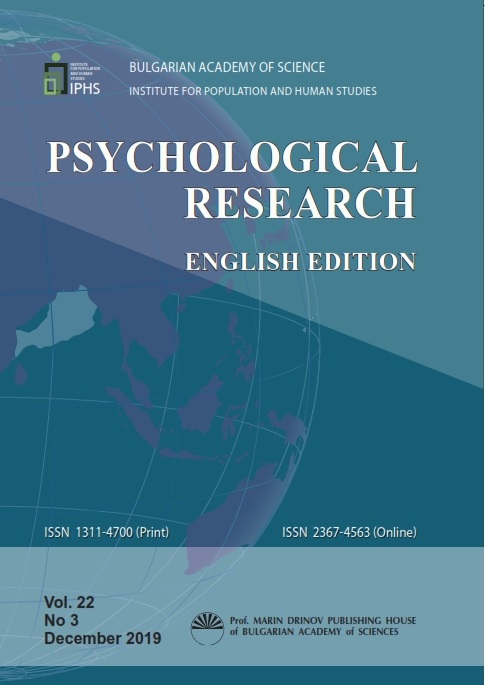The Role of Ego States in Subjective Career Success in Different Occupations
The Role of Ego States in Subjective Career Success in Different Occupations
Author(s): Sezgin Bekir, Ergyul TairSubject(s): Social Sciences, Psychology
Published by: Институт за изследване на населението и човека - Българска академия на науките
Keywords: Ego states; subjective career success; occupation; transactional analysis.
Summary/Abstract: The aim of this article is to highlight the role of ego states in subjective career success in several different occupations. The study is based upon the transactional analysis theory of the personality, which proposes that there are five functional ego states: Critical Parent, Nurturing Parent, Adult, Adapted Child, and Natural Child. Our model of subjective career success is based upon evaluations of Professional Satisfaction, Recognition, Growth and Development, Personal Life, and Authenticity. The sample is the study consists of 882 people from seven different occupations between 25 and 65 years of age, 59% of whom are women. We apply Hay’s (1996) ego states questionnaire and Shockley et al.’s (2016) subjective career success scale to measure the values of the items we examine. The results establish that the functional ego states of Adult, Natural Child, and Nurturing Parent are significant predictors of subjective career success. Our findings also indicate that there are certain similarities and differences in the predictors for career success in different occupations. In general, the Natural Child ego state is a predictor for subjective career success of the physicians, while the Adult ego state is a predictor for the engineers and the architects. Also, the Nurturing Parent is a predictor for the nurses. In addition, the work experience and the organizational position significantly contribute to the subjective career success. The research provides new knowledge concerning the role of the personality within the organizational environment and adds transactional analysis to the existing approaches in the field. The findings also promise to be useful for personnel selection and for the planning of career development.
Journal: Психологични изследвания
- Issue Year: 22/2019
- Issue No: 3
- Page Range: 799-814
- Page Count: 16
- Language: English

